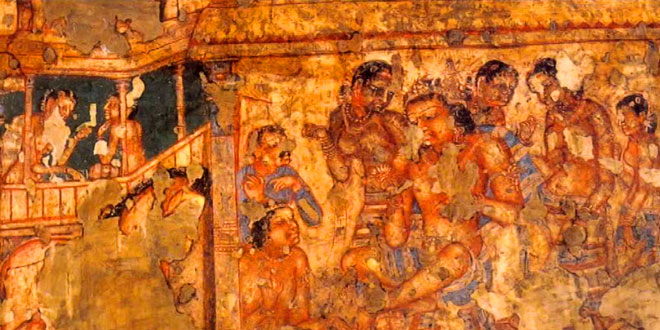Question: Why do historian feel that NBPW is linked to the second urbanization?
Answer: The second Urbanization is associated with the use of Northern Black Polished Ware. A special type of pottery. The notable feature of this pottery was that it had a glossy surface and was usually black in colour. The pottery was made of clay and was used extensively during this period. Remains of such pottery have been found in the Ganga plains of Uttar Pradesh and Bihar, central, eastern and southern India. Historians believe that the use of Northern Black Polished Ware suggests a high level of urban development.
Question: Describe the Junctions of the ‘gramabhojaka’. Why do you think he was powerful?
Answer: The ‘gramabhojaka’ was the largest landowner. He had slaves and he hired workers to cultivate the land. He was powerful since the king entrusted him with the important job of collecting taxes from the villagers. His other functions were those of a policeman and judge.
Question: Compare the drainage system in your locality with that of the cities mentioned in the lesson. What similarities and differences do you notice?
Answer: The drainage system in our localities is well-planned. The same system was adopted in the times mentioned in the lesson. Both the systems are found to be similar in many ways. The only difference that we find in the modem and the past systems is that the past system was made of mud, bricks and thatch. They could not survive for long. They were not well-maintained, but today we have well-maintained and developed drainage system. It is made of solid materials. It tests long.
Question: If you have seen crafts persons at work, describe in a short paragraph what they do.
[Hint. How do they get the raw materials, what kind of equipment do they use, how do they work, what happens to the finished product.]
Answer: I have seen crafts persons like weavers, blacksmiths, goldsmiths in villages and cities. Weavers are mostly seen in villages. I saw them running their spinning wheel or handmill. First they collect the cotton balls, they weave thread and then they weave clothes. After that they sell it in the market.
 Class Notes NCERT Solutions for CBSE Students
Class Notes NCERT Solutions for CBSE Students


